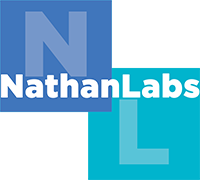
NATHAN LAB
HIPPA
- The benchmark for protecting sensitive patient data is set by the Health Insurance Portability and Accountability Act (HIPAA). Organizations that deal with protected health information (PHI) must implement and follow physical, network, and process security measures in order to be in compliance with HIPAA compliance requirements.
- All covered entities (those who provide healthcare treatment, payment, and operations) and business partners are required to comply with HIPAA (those who have access to patient information and assist with those activities). Subcontractors and any other associated business partners must likewise comply, as must other companies.
- The HIPAA Privacy Rule, also known as the Standards for Privacy of Individually Identifiable Health Information (SPIHI), according to the U.S. Department of Health and Human Services (HHS), defines nationwide standards for the protection of specific health information.
- The Security Rule also creates a set of federal security requirements for safeguarding particular health information that is stored or moved electronically.
- By addressing the technical and nontechnical measures that covered businesses must implement to secure persons’ electronic PHI, the Security Rule operationalizes the Privacy Rule’s protections (e-PHI).
- The Office for Civil Rights (OCR) under HHS is in charge of enforcing the Privacy and Security Rules through civil money fines and voluntary compliance programs.
- When it comes to HIPAA HITECH compliance, organizations can rely on our expertise to navigate the intricate requirements and safeguard patient information effectively.
Need for HIPPA Compliance
- HHS notes that HIPAA compliance is more crucial than ever as healthcare providers and other organisations that deal with PHI transition to computerised operations, including computerised physician order entry (CPOE) systems, electronic health records (EHR), and radiology, pharmacy, and laboratory systems.
- In a similar vein, health insurance offer access to applications for care management and self-service. All of these technological techniques boost productivity and mobility, but they also significantly raise security threats for healthcare data.
- The Security Rule enables covered entities to embrace innovative technology to enhance the effectiveness and quality of patient care while still safeguarding the privacy of individuals’ health information.
Why to get certified as HIPPA Compliant in USA/UAE?
- Organizations must implement the HIPAA Security Rule’s administrative, technical, and physical measures as well as best privacy practises in order to be accredited.
- By itself, this will lessen the possibility of HIPAA violations and data breaches, which will decrease the number of patient complaints and OCR investigations.
- A certificate of HIPAA compliance shows “a reasonable amount of care to comply by the HIPAA Rules” if, despite receiving accreditation, a breach still takes place and prompts an OCR inquiry.
- This may be the difference between a HIPAA violation being labelled as a Tier 1 violation, which carries a minimum penalty of $120, and a Tier 2 violation, which carries a minimum penalty of $1.205.
- HIPAA certification shows an intent to operate in compliance for Business Associates and Covered Entities that act as Business Associates for other Covered Entities, making an organization’s services more alluring and lowering the amount of due diligence necessary before a Covered Entity and Business Associate enter into a Business Associate Agreement.
Benefits of Organization HIPPA Compliance certification
- Insofar as a compliant workforce is less likely to violate HIPAA or make errors that could lead to data breaches, certification that an organization’s staff is HIPAA compliant can provide advantages similar to those indicated above.
- Achieving workforce HIPAA certification in a similar way shows that you have taken reasonable steps to adhere by the HIPAA Rules in the event that OCR conducts an audit or inquiry.
- For certain employees, HIPAA certification can support promotion requests, encourage patient trust, and improve prospects on the job market.
- The most significant influence on a workforce member’s professional life, though, comes from what they learn in a certification programme, which can assist them avoid inadvertent infractions that could have serious repercussions.
Advantages of HIPPA compliance
- Work in a safe and secure manner with US companies.
- Use the industry-recognized Seal of Compliance, a symbol that can be affixed to any marketing materials, to prove your compliance.
- Maintain a record of all employee HIPAA training.
- Make all individualised policies and procedures and store them.
- Be safeguarded in the event of an audit
Frequently Asked Questions (FAQ)
What is HIPAA, and why is it important?
HIPAA stands for Health Insurance Portability and Accountability Act. It sets the standard for protecting sensitive patient data. Organizations dealing with protected health information (PHI) must adhere to HIPAA regulations to ensure the security and privacy of patient data.
Who needs to comply with HIPAA?
Covered entities, which include healthcare providers, health plans, and healthcare clearinghouses, must comply with HIPAA. Additionally, business associates who handle PHI on behalf of covered entities are also required to comply
What is the HIPAA Privacy Rule?
The HIPAA Privacy Rule, or Standards for Privacy of Individually Identifiable Health Information (SPIHI), establishes nationwide standards for protecting specific health information. It focuses on ensuring the privacy of patients' health data.
What is the HIPAA Security Rule?
The HIPAA Security Rule complements the Privacy Rule by setting federal security requirements for safeguarding electronic protected health information (e-PHI). It outlines technical and non-technical measures that covered entities and business associates must implement to secure e-PHI.
How does NathanLabs help with HIPAA compliance?
NathanLabs provides comprehensive solutions to help organizations achieve and maintain HIPAA compliance. Our expertise covers both technical and non-technical aspects, ensuring that your systems, processes, and policies align with HIPAA requirements. We assist in implementing security measures, conducting risk assessments, and offering guidance to address compliance challenges.
